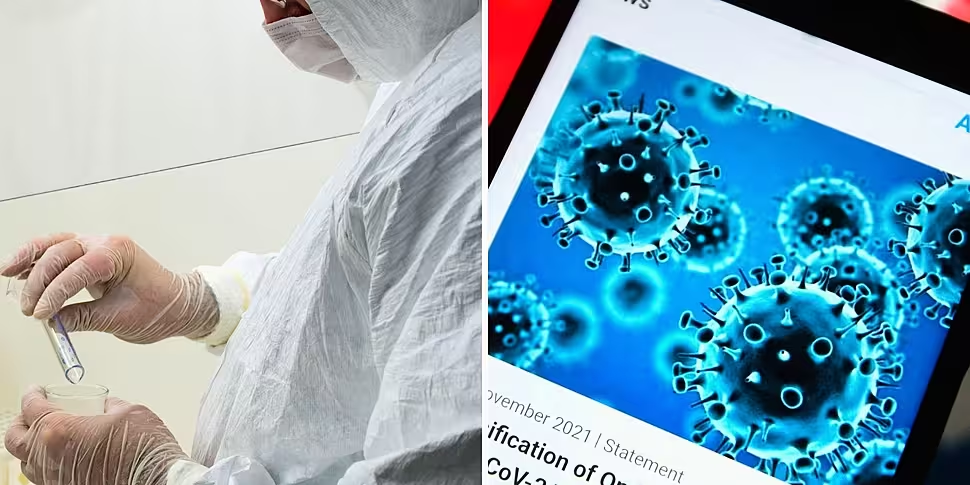The World Health Organisation says we should understand more about the new Omicron COVID-19 variant 'in weeks'.
However spokesperson Dr Margaret Harris says basic public health measures are simply not being implemented in day-to-day life.
She was speaking as the coalition party leaders are set to meet officials from NPHET later to discuss the new variant.
Regulations on new travel and home quarantine policies are being drawn up.
Dr Harris told Newstalk Breakfast global vaccine equity is critical to prevent "the big one".
"I think the critical thing is that all countries that have got access to vaccines - also countries that have the pressure or the power to influence the manufacturers to increase the manufacturing in the countries with no access - that's got to happen really rapidly.
"Also, sharing of doses really has to happen much more rapidly.
"We need to get every country vaccinated - let's hope this is a dress rehearsal, let's hope this is not the big one.
"But the big one will come if we don't deal with vaccine equity properly and seriously".
Dr Harris says they need time to fully understand this latest variant.
"To be honest, we've got more questions than answers - but the reason for putting this on the list of Variants of Concern was two things.
"The unprecedented number of mutations - especially affecting the spike region, which is the thing the virus uses to get into our cells.
"And the other thing [was] some emerging evidence that people were getting re-infected with the Omicron, people who'd been infected with something else.
"But the big issues we want to understand is what's it's ability to transmit itself, and will it have any ability to escape the vaccine".
She says the answers to these questions will be achieved through studies, adding "the timeline we're looking at is weeks".
'It's not being done'
Asked if this new strain could result in more serious illness in people, Dr Harris says that is the other big question.
"We will understand that when we look at who's in hospital and whether they've got this thing or not.
"As you know the current vaccines we've got are very good at protecting against severe disease and death of course - but we don't know whether this one has the ability to cause more severe disease, especially in people who are vaccinated.
"So that's another of the big questions - and that's again why we're saying to countries: anyone's who got this in their community, please start looking each of the specific questions around those things - so that we can get the answers very quickly."
Asked what could help stop the spread, she says actually implementing basic public health measures is key.
"The new thing is to actually do it - yes we all know what will stop transmission, yes we know that avoiding the social mixing... wearing the mask, and ensuring if you're in a space indoors make sure it's really well ventilated.
"We say that, I've said that over and over again, but if you go around and look in the real world it's not being done.
"So the new thing is to really do it".









